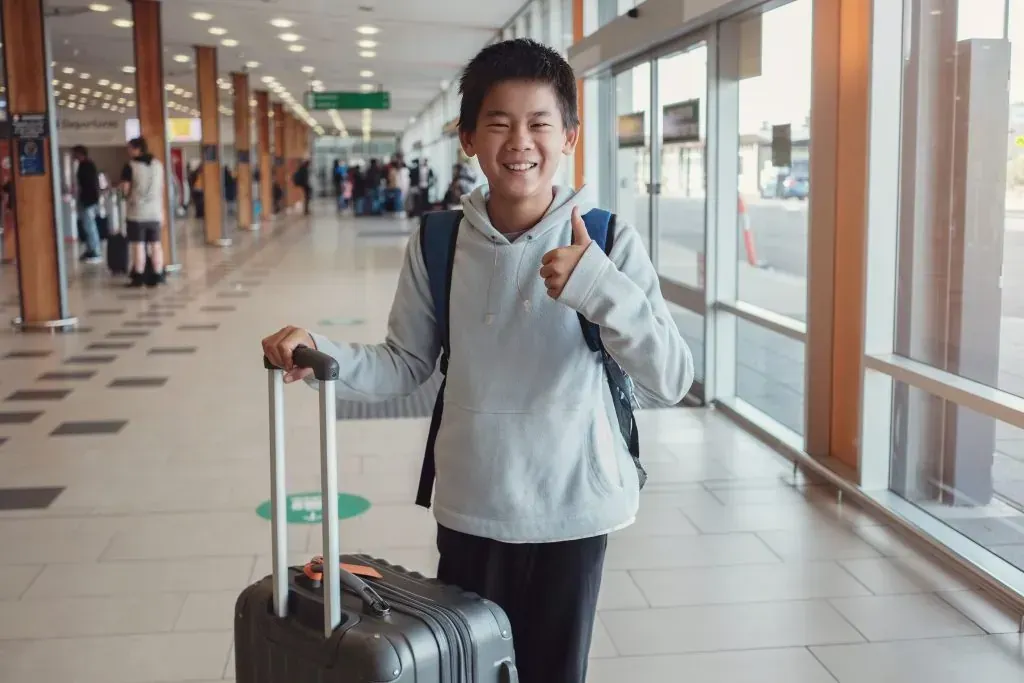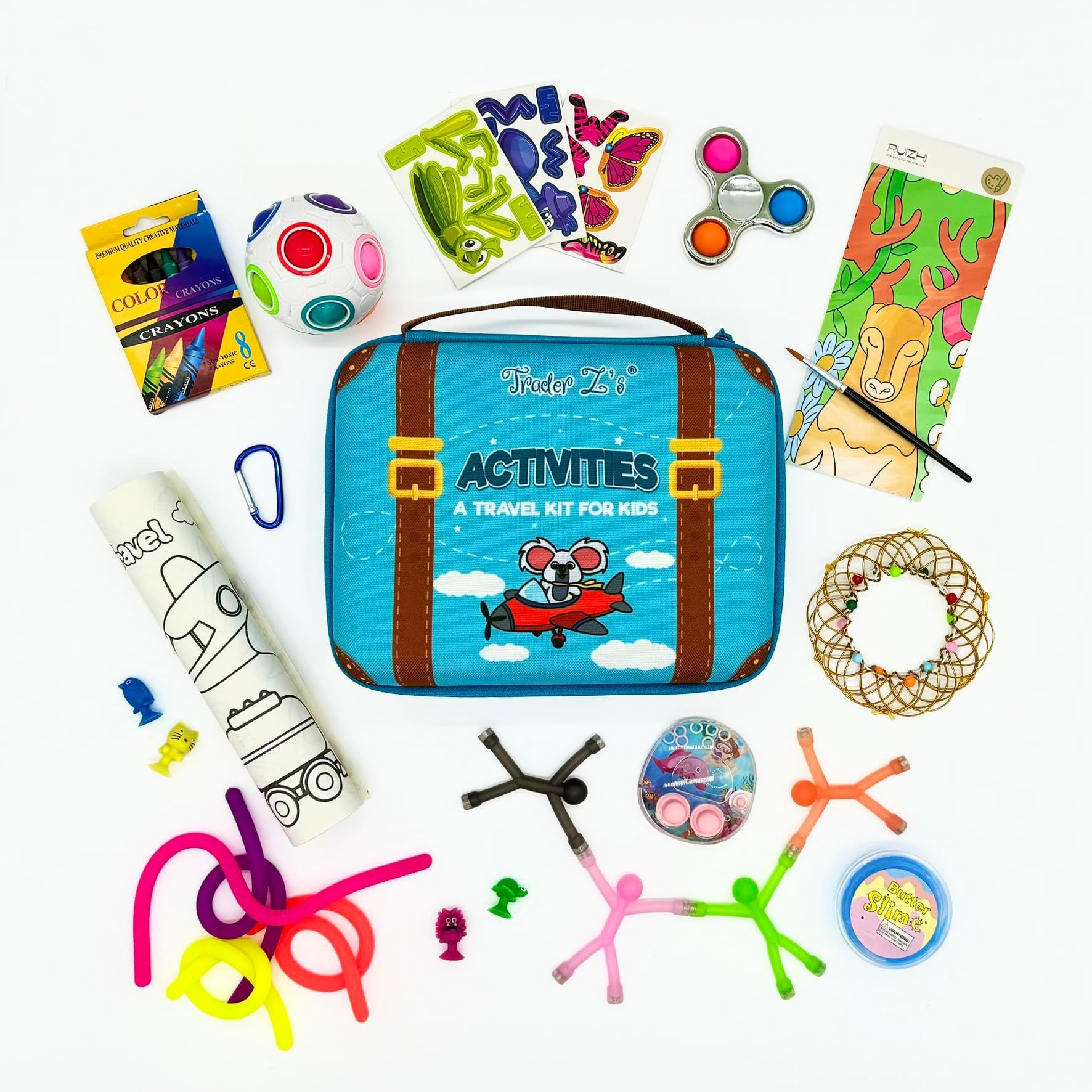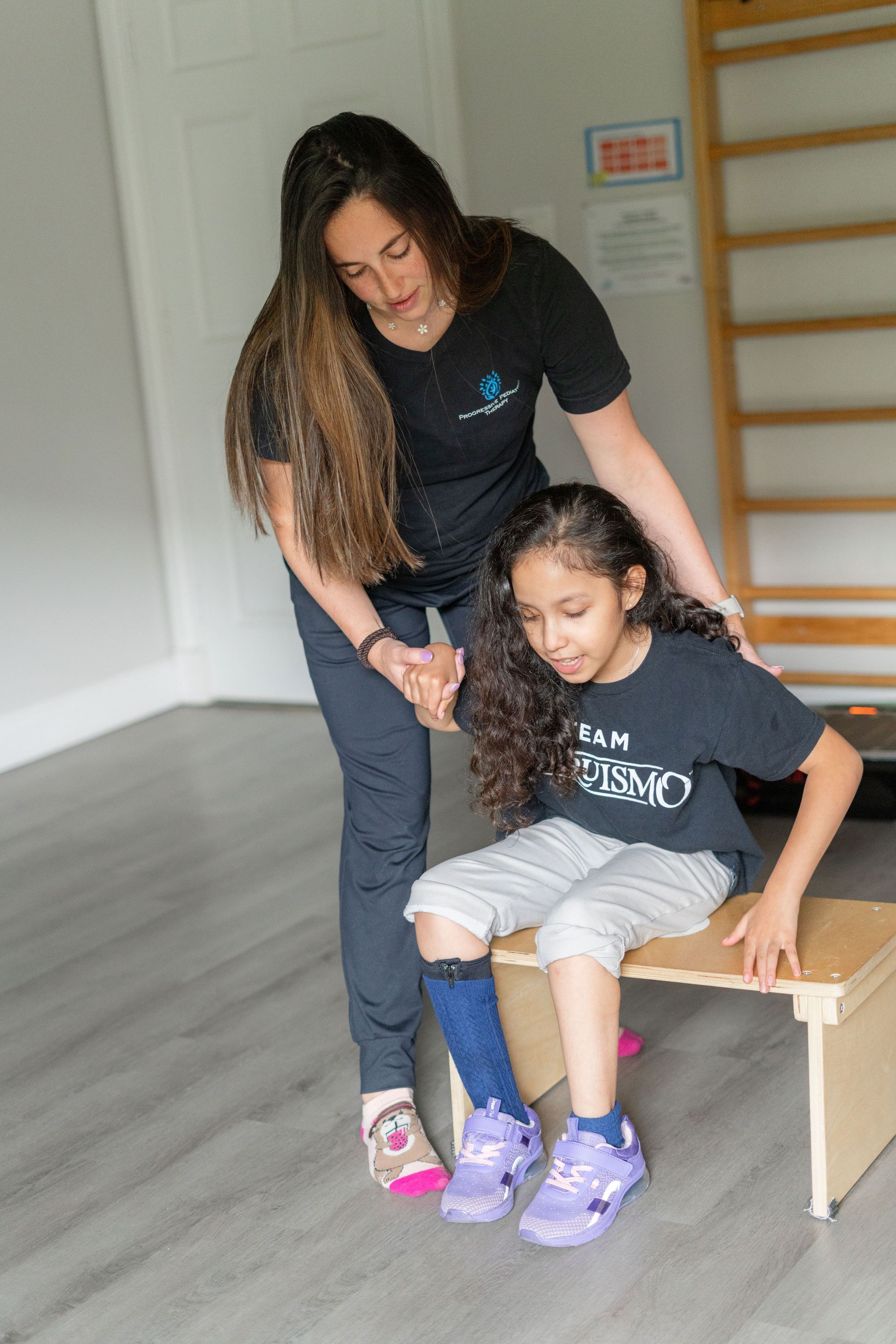Your Clinic
SET A LOCATION
Your Clinic
SET A LOCATION
Summer is a season of sunshine, adventures, and unforgettable memories. But for families of children with sensory challenges, the thought of travel can also bring anxiety and overwhelm. At Progressive Pediatric Therapy, we believe every child deserves the chance to enjoy summer experiences, comfortably and confidently. With a little planning and the right support, travel can be not just manageable but truly enjoyable!

Children with sensory processing difficulties may react strongly to changes in environment, routine, and stimuli. This can include sensitivity to noise, lights, textures, or crowds which are common elements of airports, road trips, or theme parks. Travel, while exciting, can be unpredictable and overstimulating.
That’s why preparation is key. Helping your child anticipate new experiences, introducing sensory tools, and keeping a flexible mindset can make all the difference.

Involve your child in the travel plans. Talk about the trip, where you’re going, and what to expect. Use visuals like maps, photos, or storyboards to walk them through each step.
Many children with sensory sensitivities find comfort in predictability. A simple itinerary with pictures or icons can help ease anxiety and give a sense of control.
Include calming items like:
These tools offer comfort and support during overstimulating moments.
If flying, visit the airport in advance if possible. Try a mock road trip or rehearse hotel check-ins at home. Role-playing common travel events can build familiarity and confidence.
Bring along familiar objects, like a favorite stuffed animal, pillow, or bedtime story. These can act as emotional anchors during transitions.
While travel often requires flexibility, maintaining key parts of your child’s routine like meal and sleep times can provide grounding throughout the day.

Traveling with a child who has sensory needs isn’t just about logistics, it’s about mindset. A few tips for the whole family:
Every child is different. What works for one might not work for another. The goal isn't a “perfect” trip, it’s a positive experience. Celebrate small wins, honor your child’s efforts, and know that every adventure builds resilience.
At PPT, we help children build the sensory regulation and coping skills needed for everyday life, including special moments like summer vacations. Our occupational therapists offer personalized strategies and home programs that empower families to travel with more ease and less stress.
If your child faces sensory challenges, we’re here to help you prepare before, during, and after the trip. Reach out to schedule a consultation or learn more about our sensory integration services.
Let’s make this summer one to remember, full of joy, discovery, and connection!









We empower children, families, and the community to learn, grow, and celebrate every child's unique abilities.
Quick Links
Contact Details
Phone: 561-376-2573 | 561-918-0190
Fax: 561-218-4939
VIP Concierge: 561-717-1764
Clinic Locations
All Rights Reserved | Progressive Pediatric Therapy, Inc. | Privacy Policy | Terms of Service
Site by Spearlance